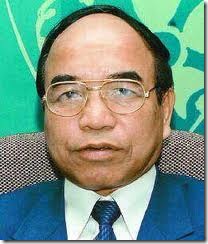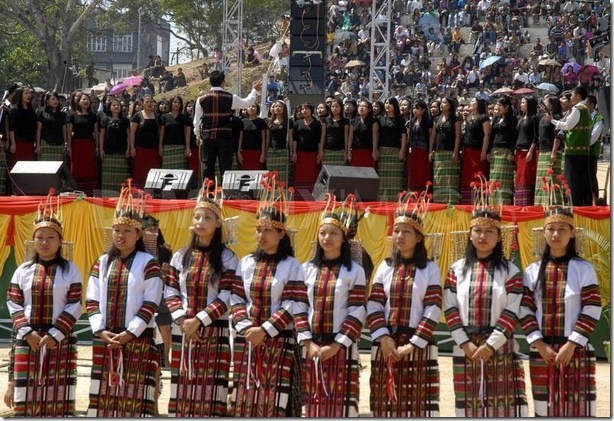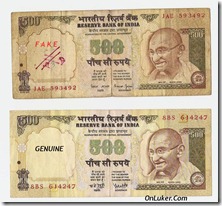Indian athletic legends yet to receive invites
 Another mess-up by the CWG organisers.
Another mess-up by the CWG organisers.
Athletes who have won laurels for India in the past are being cold-shouldered by the organisers. They have not yet been invited for the Games, which begin in less than 2 days time. And this is not the first time such a thing has been happening in India. When will we learn to respect?
New Delhi: Former star athletes, who have been invited for the Oct 3-14 Commonwealth Games, are livid with the Organising Committee (OC) for not sending them the invitation or the accreditation cards with barely three days to go for the opening ceremony.
Earlier this month, the Indian Olympic Association (IOA) asked the national sports federations to inform Arjuna, Dhyanchand, Dronacharya, Rajiv Gandhi Khel Ratna awardees and the Olympic, Asian Games and Commonwealth gold medallists to send their accreditation forms. Despite submitting all the papers in time, the state associations and the athletes haven't yet heard from the OC.
Jyotirmoyee Sikdar (Khel Ratna and Padma Shri), Soma Biswas (Arjuna Award), Saraswati Saha (Arjuna Award) and Pinki Pramanick (Doha Asian Games gold medallist) are upset with the Athletics Federation of India (AFI)for treating them shabbily.

'I was invited for Melbourne but not for Delhi'
Saraswati, who won the 200 metres gold medal at the 2002 Busan Asian Games, feels it was unfortunate that former athletes are being treated so callously at a time when the Games are held at home.
"We are having a major event here after such a long time and as former athletes we always want to enjoy the occasion. I don't think we will be lucky this time," she said.
Jyotirmoyee, former CPI-M MP from West Bengal, said in India the athletes don't get their due. "This shows how the OC treats the athletes in this country. When I was an MP, I was invited for the Melbourne Commonwealth Games, but when the Games are held here, I don't know whether I would be able to witness them," Jyotirmoyee, who won gold in 800m and 1500m at the 1998 Asian Games, told IANS Thursday.
Celebrated athletes from several other states have also not received the invite.

Passing the buck
Soma Biswas and Pinki Pramanik are also Asian Games medallists. Soma won the silver medal at the 2002 and 2006 Asian Games while Pinki gold in Doha and silver in Melbourne in 4x400 metres relay.
West Bengal Athletics Association (WBAA) had sent all particulars about the athletes to the AFI before the Sep 23 deadline. "We had sent everything before deadline, but we are yet to hear anything from AFI. Despite repeated reminders there is no response and do not know whether the athletes can go to Delhi for the Games," a top WBAA official told IANS.
The AFI has passed the buck to the OC, saying it has messed it up. "We can't be blamed. We were just asked to send the accreditation forms by the Indian Olympic Association (IOA). The OC is handling all the invitations," said AFI's officiating secretary Ravinder Chaudhary.

'I gave them a choice of hotels or Games Village'
Meanwhile, amidst all the brouhaha over participating nations opting to stay in five star hotels rather than the Games Village because of it not being ready and portions of it were unclean, Commonwealth Games Organising Committee (CGOC) chairman Suresh Kalmadi Thursday revealed that it was he who gave them the option.
"All the 71 countries have come. I gave them a choice, 'whether you want to stay in hotels or in the Village?' but every team said, 'we want to stay in the Village'," said Kalmadi.
Sporting a confident and relieved attitude, Kalmadi, who was welcoming the arrival of the Queen's Baton Relay, also urged Delhiites to "come out and play".
"You have to be a part of it. You have to participate, come out and play. It is everybody's game. We are going to have a great opening ceremony. If you can't get the tickets, please watch in on TV," he said.

'Kalmadi deserves a pat on the back'
Delhi Chief Minister Shiela Dikshit praised Kalmadi and said he deserves a pat on the back for the completion of all preparations for the Commonwealth Games (Oct 3-14).
"Our dear friend Suresh Kalmadi needs a big bump and pat on the back," Dikshit said, while enacting the gesture over the visibly happy chairman's back. "I am on top of the world. Everything is fine, ready and everything is complete," she added during the arrival of the Queen's Baton Relay in the capital Thursday. Delhi Lieutenant Governor Tejinder Khanna said Delhiites should treat the visitors with two things in mind - the world is one and guest is god.
"When we are asked what does the Commonwealth Games mean to us (Delhiities), I'd say it is 'Vasudhaiva Kutumbakam' and 'Atithi Devo Bhava'. Clearly 'the whole world is one' and 'guest is god' - this is what the Games mean to us," Khanna said.
"All participating nations have given us a thumbs up saying that we have given them global level facilities. And now we should make sure that when they go back they should take with them Indian memories of warmth, openness and affection," he added during the same programme.

Kalmadi slams builders for the mess
Kalmadi also laid the blame squarely on the builder and the contractor for the shoddy work at the Games Village, which has come under heavy criticism from some of the participating countries.
Several participating countries had labelled the Village for being filthy and unlivable.
Kalmadi said that there was conflict between nodal agency Delhi Development Authority (DDA) that gave the contract to Emaar-MGF to build the Games Village and the builder.
"Due to the conflict, work was delayed for three months and that was the main problem. We got the Village only a month back and we needed some time to get things in place. But now the Games Village looks beautiful and I can tell you it is the best Commonwealth Games Village," he said.
Kalmadi, however, was happy with the last minute work carried out at the Games Village and said that the foreign athletes and officials are now happy. "Village is one of the finest place. We have given an option to all teams to first go to hotel and then they can shift to the village after inspecting the conditions there. Right now not even a single country is staying in hotel," said Kalmadi.
"International players and team officials are very satisfied with the Village's facilities. All 71 countries are participating in the games and not even a single country has kept itself out of the games. Each delegation is saying that they are liking this place very much and they have no problems. I am sure that nobody has seen such games village before," he said.

'Focus on good aspects of CWG'
Kalmadi said that he was also ready for any kind of probe regarding the alleged disproportionate use of funds.
"The photo that media is showing is over-month old and you cannot conclude anything on the basis of it. I am ready for any kind of inquiry; in fact I personally want that an inquiry must be conducted into all allegations," said Kalmadi.
"We should also focus up on good aspects of these games. Our city (New Delhi) has gone ahead by nearly 10-years. See the airport, metro is running from airport to the games villages and to other venues. Now we only want Indian players to do well and to win maximum medals in the games," he added.
He also thanked Prime Minister for giving a grant of Rs. 1600 crore for the training of athletes. "This has happened for the first time. Money has been spent on the training of athletes, accommodation and on providing them world-class facilities," said Kalmadi.
The Games Village is spread over an area of 63.5 hectares and has a total of 34 residential towers. It has 1,168 apartments comprising 4,008 bedrooms which will house the athletes and team officials.
Source ANI






















